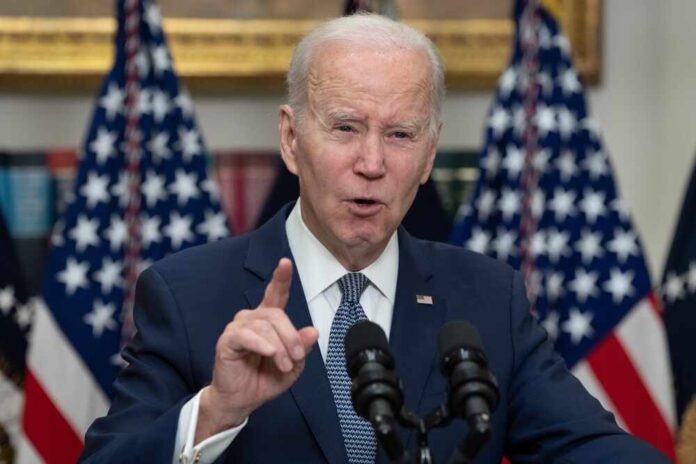
In an unusually candid moment this week, Joe Biden conceded an error that conservatives have been flagging since the Inflation Reduction Act’s inception. During a Park City, Utah campaign fundraiser, Biden remarked, “I wish I hadn’t called it that. It has less to do with inflation than it does providing alternatives to economic growth.”
The Act’s title promised a clear objective — curbing inflation. Yet, the spending authorized by the bill focused on projects that barely addressed inflation’s root causes. Over $120 million was poured into projects labeled under the guise of “clean energy,” an initiative the left champions to combat global warming. But what’s the connection between this expenditure and inflation?
Let’s be generous and say the Inflation Reduction Act only cost $750 billion (it’s gonna cost way more).
18,000 jobs means $41.7 million per job. https://t.co/WU8UGQkODr
— Oilfield Rando (@Oilfield_Rando) August 7, 2023
Department of the Interior Secretary Deb Haaland seemed proud of this diversion from the bill’s original promise. In March 2023, she proclaimed, “The Inflation Reduction Act is a historic and transformational investment toward achieving President Biden’s ambitious goals to help American families and tackle the climate crisis.” This only confirms that the bill’s initial selling point as a means to combat inflation was never serious.
This pivot in stated objectives has conservatives questioning the transparency of the Biden administration. Did they assume the average American wouldn’t see through their thinly veiled priorities?
A stunning admission.
As I've said time and again, the Orwellian-named "Inflation Reduction Act" didn't actually reduce inflation, it kept inflation going.
And 60% of clean-energy projects in the bill went to foreign companies!
That's Bidenomics. https://t.co/ZkD5s5ozOb pic.twitter.com/i5dfxIhVbV
— Rep. David Schweikert (@RepDavid) August 11, 2023
In 2022, before the Act’s passage, Biden hailed it as the solution to multiple national concerns. “The Inflation Reduction Act is the strongest bill you can pass. It will lower inflation, cut the deficit, reduce health care costs, tackle the climate crisis, and promote energy security,” Biden declared. Yet, the Congressional Budget Office wasn’t as optimistic. Their assessment showed that the bill would have a “negligible effect” on inflation for 2022 and 2023.
Despite skepticism, the Act was passed by the 117th Congress with a close 51-50 vote requiring a tie-breaking vote from Vice President Kamala Harris in the Senate and a 220-207 vote along party lines in the House.
Biden last year:
The Inflation Reduction Act “is the strongest bill you can pass to lower inflation”
Biden now: “it has less to do with inflation” pic.twitter.com/oGwOBVx5Bg
— John Hasson (@SonofHas) August 10, 2023
Sen. Joe Manchin (D-WV), a primary co-author of the Act, has been vocal about its claimed benefits. Manchin argues the Act reduced the nation’s debt by $238 billion and noted other advantages like affordable prescription drug prices and advancements in energy security. However, his disagreements with the Biden administration concerning the Act’s actual focus are palpable.
Frustrated with the administration’s sidetracking from ensuring affordable fossil fuels, Manchin pointed out, “They broke their word to the American public.” He emphasized that the legislation was balanced for present energy needs and future technological investments.
Manchin’s frustration with the Biden administration is shared by conservatives and ordinary Americans still being hammered by rising costs for essential items. The shift from addressing inflation and energy security to an environmental agenda reflects a disregard for the initial promises made to the public.
















